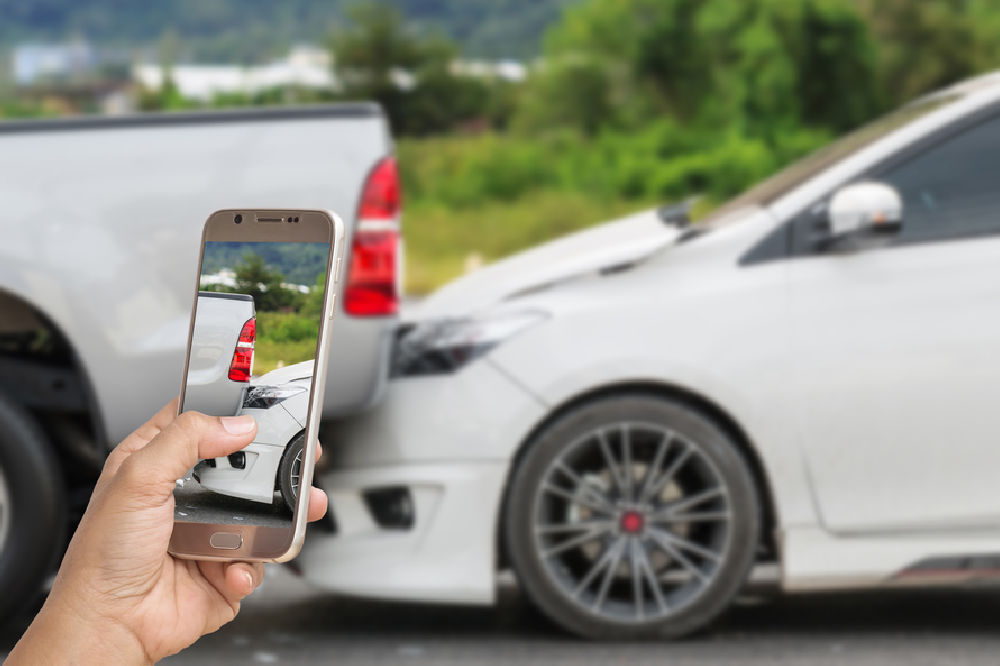If you’ve ever been in a car accident, even just a minor fender-bender, you can understand how stressful and traumatic these situations can be. There are often a million thoughts flying through your head in moments following an accident, making trying to think clearly and with reason a challenge. However, your actions following an accident can play a significant role in how your accident case plays out. In many situations, victims are too rattled to even think about preserving evidence after a car accident, but failing to do so can negatively impact your claim.
To avoid having your claim denied and ensure you get the compensation you deserve, you will need to keep a calm head and gather as much evidence as possible. If you are not severely injured, take a few moments to gather your thoughts before exiting your car. If you are hurt, it’s understandable that gathering evidence may be out of the question, depending on the extent of your injuries.
When in doubt, contact a local personal injury attorney. They can review your case and help you gather evidence after the accident has occurred to help you win your case while you focus on your recovery. At Crossen Law Firm, our Indianapolis car accident attorneys are dedicated to advocating for our clients’ rights and have the skills necessary to ensure sufficient evidence is provided to prove fault.
What Are The Benefits of Preserving Evidence After a Car Accident?
Without sufficient evidence, your personal injury claim may get denied or reduced. Following an accident, claims are filed with auto insurance companies, and the at-fault driver’s insurance is typically the one responsible for paying damages to the injured victims. However, it is quite common for insurers to look for any way they can to deny claims or reduce amounts to avoid having to pay too much money.
Even if you deserve damages, insurers generally only care about their business and will closely evaluate the case to see if they can get away with paying as little as possible. This is why it is so crucial to provide as much evidence as you can. The more evidence you provide, the harder it will be for insurers to deny your claim or reduce it. Generally, more evidence means more compensation.
What Evidence Should You Collect After a Car Accident?
The evidence you and your attorney gather will help you get the compensation you deserve to cover medical expenses, car repairs, lost wages, and other damages. Numerous factors and evidence can affect your claim and how much money you will receive.
The most important evidence in car accident claims includes:
The Police Report
Immediately following the accident, make sure the authorities are contacted and arrive at the scene to file a report. Even if the accident is minor, not calling the police can negatively impact your claim. There should always be a report filed, even if you have to go to the police station yourself. In some areas, local police may not arrive if there are no injuries or minimal damage, so it’s up to you to ensure a report gets filed.
The information in a police report is crucial when filing an accident claim as it can sometimes be the determining factor in who is held liable. Without a report, the other party could say whatever they want about what happened, and there will be no report to prove otherwise.
Photos of the Accident Scene
Photographic evidence is also incredibly important. Statements and reports are one thing, but photos and videos can offer more substantial proof of what happened. When taking pictures, make sure you photograph anything and everything related to the accident, not just photos of the car damage.
Photos should include:
- Car damage
- Injuries
- Shots of the scene as a whole
- Nearby traffic signs and signals
- The positioning of the vehicles involved
- Skidmarks and road conditions
- Weather conditions
- Obstructions in the roadway if there are any
- Anything else that feels relevant to the accident and what happened
Witness and Personal Testimonies
In addition to making your own statement to the police, you should also take notes about anything you can remember relating to the accident. Though it is uncommon, police reports can have errors and mistakes, so it’s important to document things yourself as best as possible for backup just in case.
You should also get contact information from witnesses and take notes on what they saw happen. In some cases, witnesses will be called upon to give testimonies, and their statements can make a huge difference in how your case plays out.
Medical Records
Of course, your injuries also need to be documented, as this will determine how much compensation you receive for medical expenses. Documenting your injuries can also prove in general that an accident did occur and it was severe enough to cause injury. Medical evidence should include photos of your injuries as well as notes from your treating physician, hospital documents and records, bills and receipts, or anything else relating to the treatment of your injuries.
Consult an Indiana Personal Injury Lawyer
At Crossen Law Firm, we have over 20 years of experience fighting for victims of car accidents. We understand how traumatic and chaotic the aftermath of an accident can be and are here to help you in whatever way we can. We urge our clients to gather as much evidence as possible at the scene but will do what we can to help you gather further information after the accident has occurred. Our goal is to ensure you get the compensation you deserve so you can move on and recover from this traumatic experience as best as possible.
Contact us today or give us a call for a free consultation at (317) 401-8626.

 317-401-8626
317-401-8626 
.jpg)